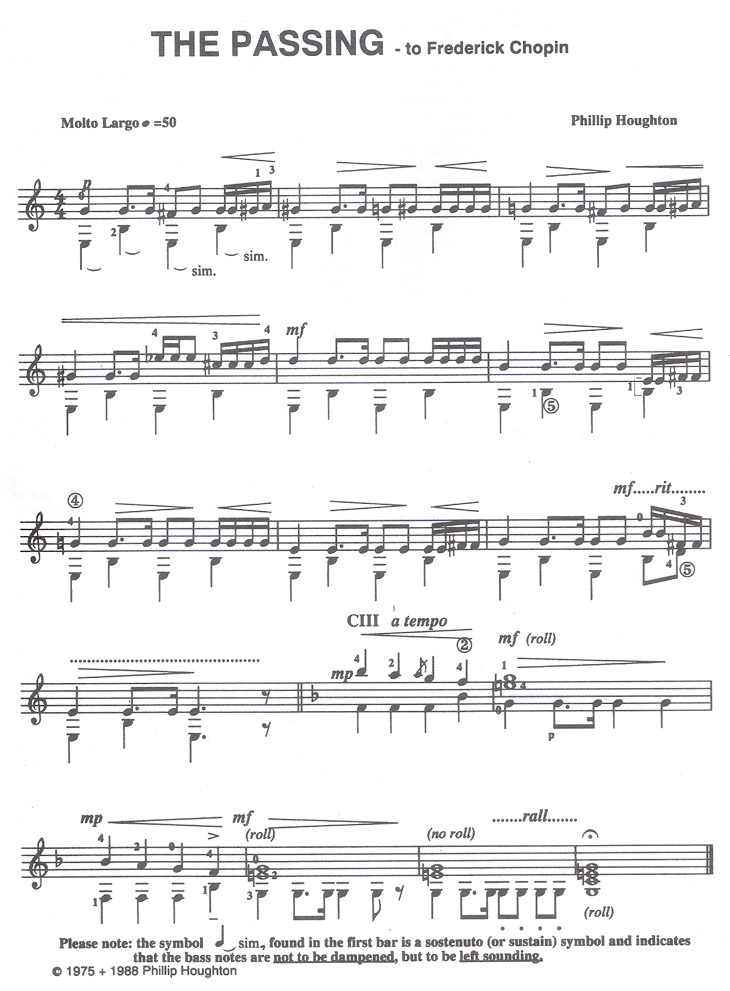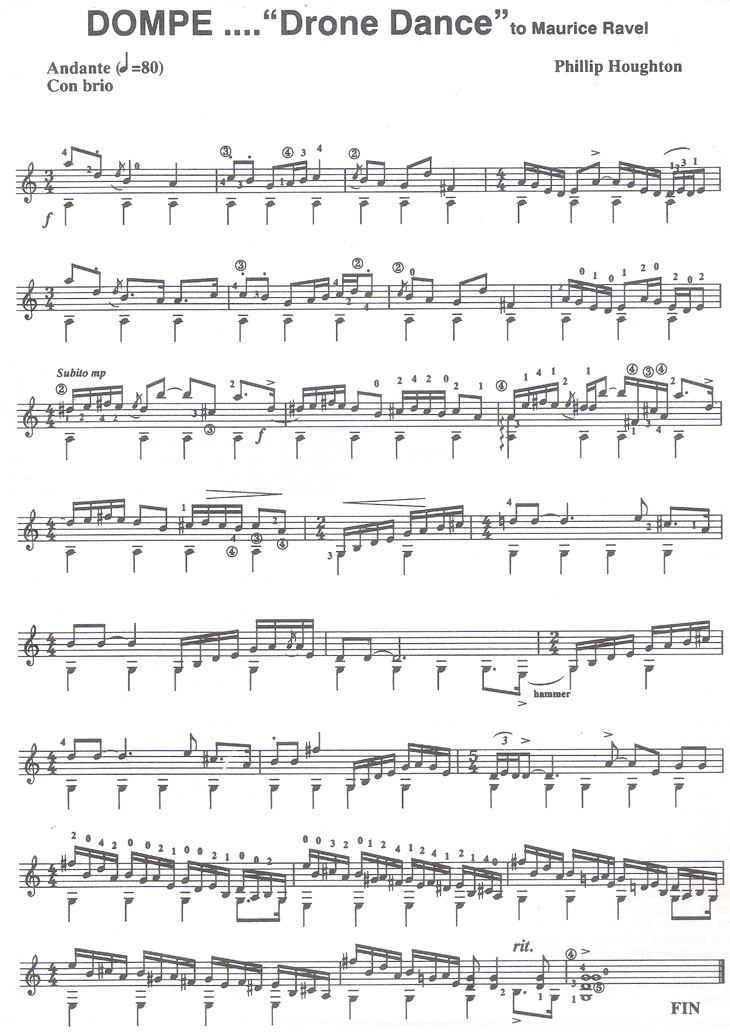
Phillip Houghton
Music for me is the end result of trying to bring dreams into reality, it’s a universe of emotion producing a living experience not easily expressed (for a musician) in words but found in sound itself.
Share this:
[feather_share]
The combinations of techniques and systems employed in producing music can give it a specific language. The culture within which it evolves its content and meaning and the choice of instrumentation is also crucial in its transition from “dream, to form, to performer.” How this is achieved is completely up to the individual, as apart from practical instruction in theory (harmony, counterpoint etc.) I don’t think composition can be taught. I see it as a process of invention and discovery – an internalised dialogue between the composer, the known and the unknown – the unknown which is intuitively felt, is abstract and is perhaps the “space” we fill with “learning.”
It was this sense of intimacy, or inner-voice, which directed me away from institutionalised education and led me down the road of intensive private study, going at my own pace through scores, recordings, volumes of books and discussions with many composers and musicians, of whom four people have had a major impact on me: John Champ, Sebastian Jorgensen, Peter Mumme and Helen Gifford.
In music the one constant (that I see) through the ages has been melody – a tone or pitch, its travel in time, its rhythm and the style.
I can’t explain why I love the guitar. Perhaps it’s the poignancy of each note’s death -the pluck and the decay; the incredible tactile intimacy of direct contact in sound production. Or maybe, for me, it’s the instrument of Arcadia, the brushing of the strings breathing at once as an ageless voice of change.
I left a Fine Arts painting course in ‘73 and bought my first classical guitar. A big fan of the Beatles, Jimi Hendrix, Yes, Led Zeppelin, King Crimson, Miles Davis and Frank Zappa to name a few, the world of classical music suddenly opened up to me. It was an exciting time. My principal studies were with Sebastian Jorgensen (1975-76) at Montsalvat, Eltham, a wonderful centre for artists, jewellers, musicians, sculptors and poets. I later taught there, assisting in concerts, music festivals, drama and dance productions.
During the years 1977-80 I performed both locally and interstate and was recorded and broadcast by the ABC and other radio stations, playing, largely, original compositions. Career highlights include the Boosey and Hawkes publication of a set of some of my early guitar pieces, Five Exotic Studies; the premiere of In Amber given by Sebastian Jorgensen and the Petra String Quartet; overseas performances by the John Mills Trio of a set of Six Trios, originally written to commemorate the opening of Montsalvat’s chapel premiered by Angelo Karavitis, Sebastian Jorgensen and Roger Treble.
Although I’ve written music for theatre, film, experimental video, dance and electronic projects, it is the guitar that is my main interest and which I find most fulfilling.
Much has been written about the state of music today and where it is headed. For every person there is an opinion, and therein rests the broad score of expression, be it tonal or atonal, this school or that school, electronic, acoustic etc. Never before have we had such a full palette of sound sources to take us into the future, nor such a rich history to draw from music is such a subjective thing – a thing of the spirit.
THE SOLOS
These two early solos are from a collection of Eight Short Solos (Book 1). Melodic and of an easy to moderate standard, the Solos are each dedicated to certain composers who had an impact on my development. ‘The Passing’ is a little tombeau (or lament) to Chopin. ‘Dompe’ to Ravel, is loosely based on the 16th Century English dance form of the same name (or Domp, of Dump), that works on pedal notes or drones, of which the earliest known example is thought to be ‘My Lady Carey’s Domp’ c.1525. These two pieces are not intended pastiches, only my response and attempt to capture a mood and feeling.


